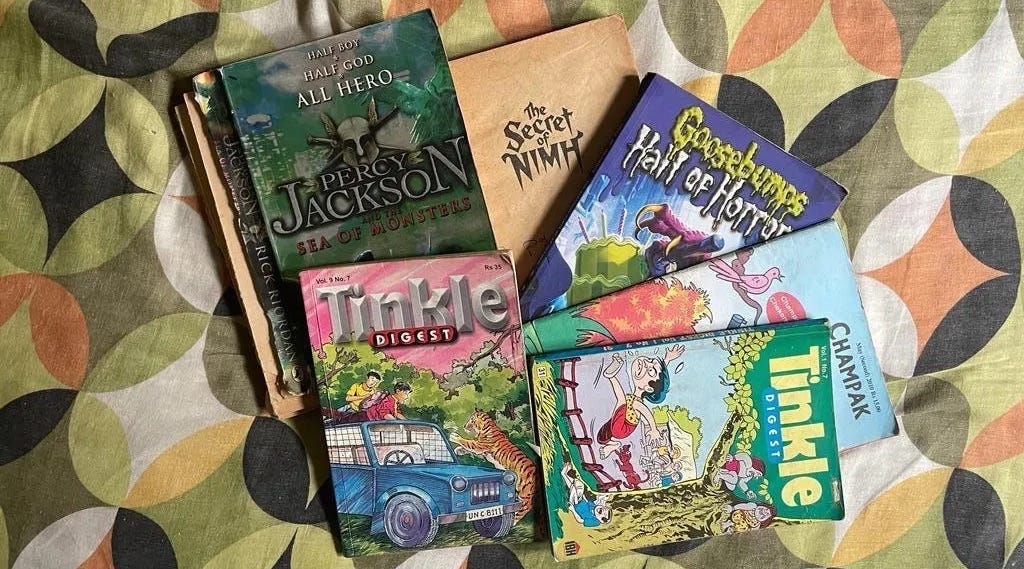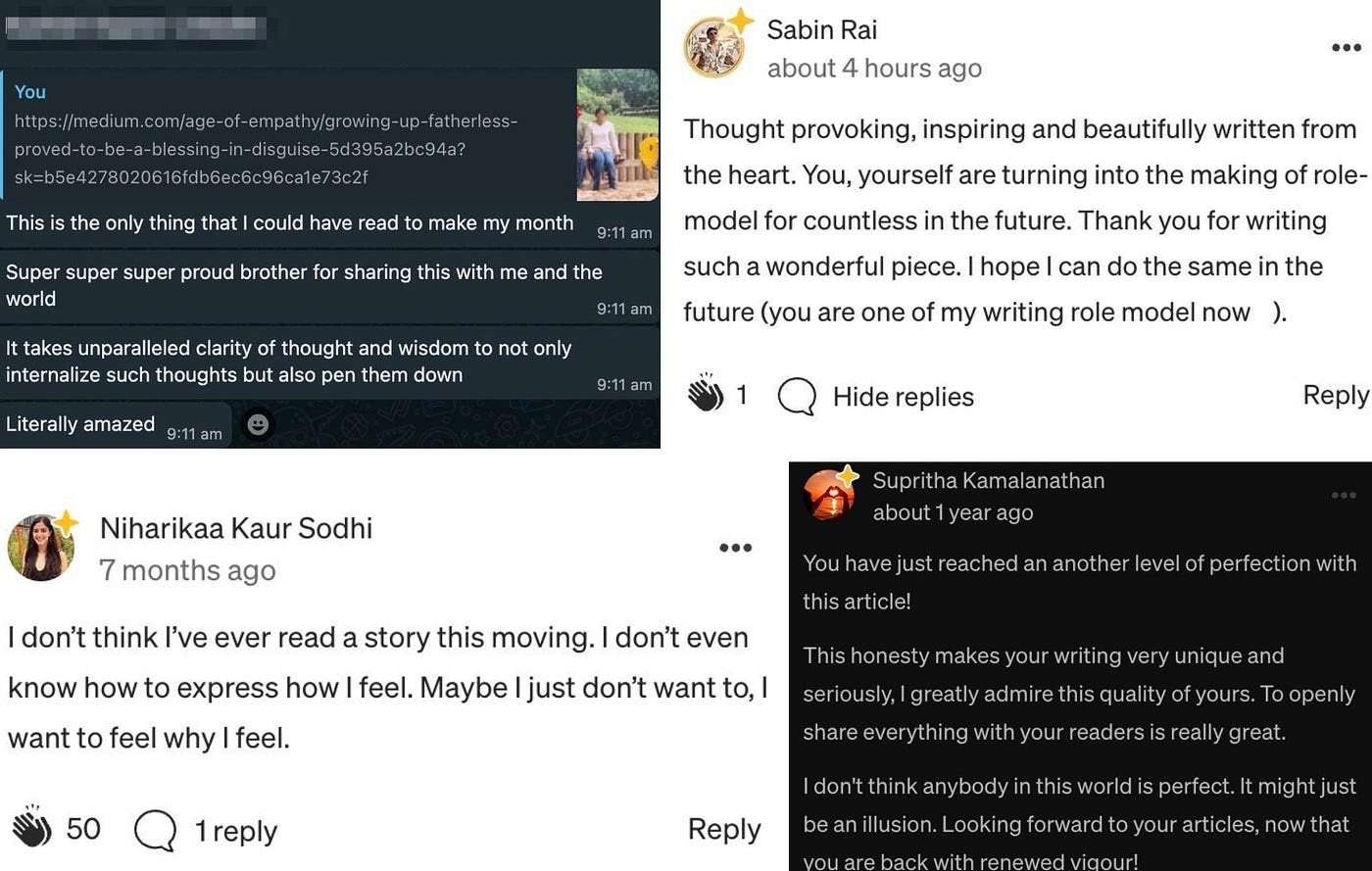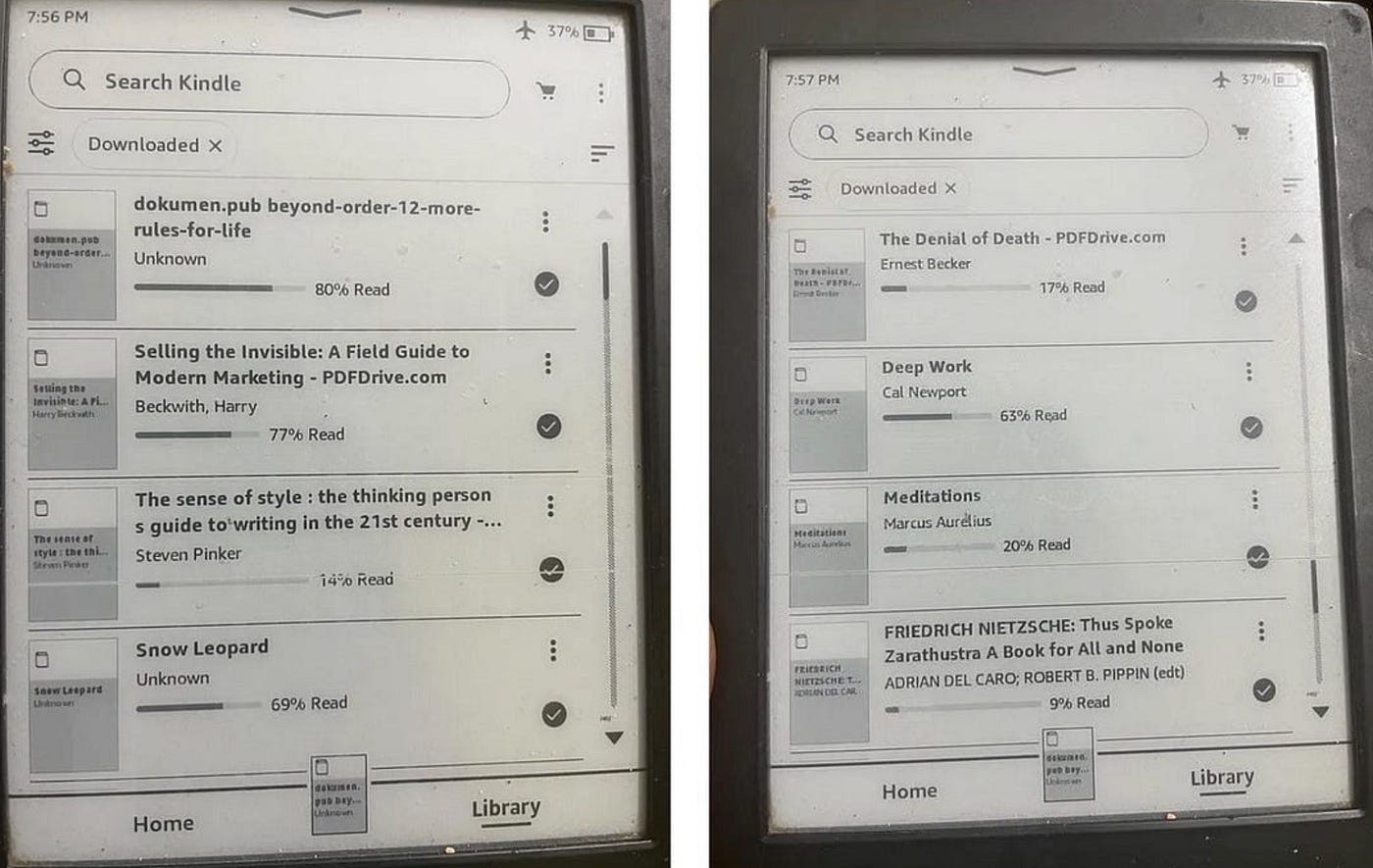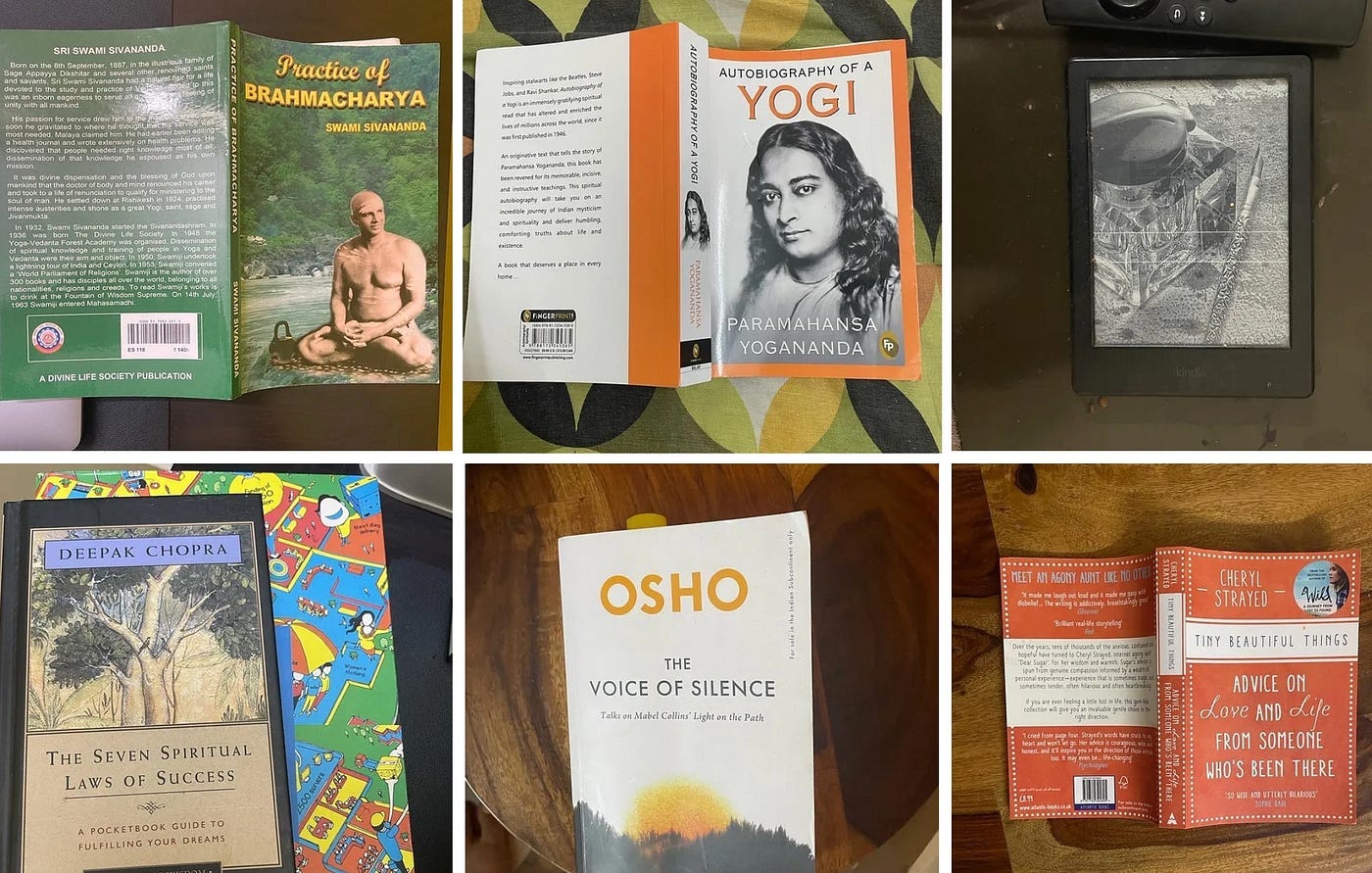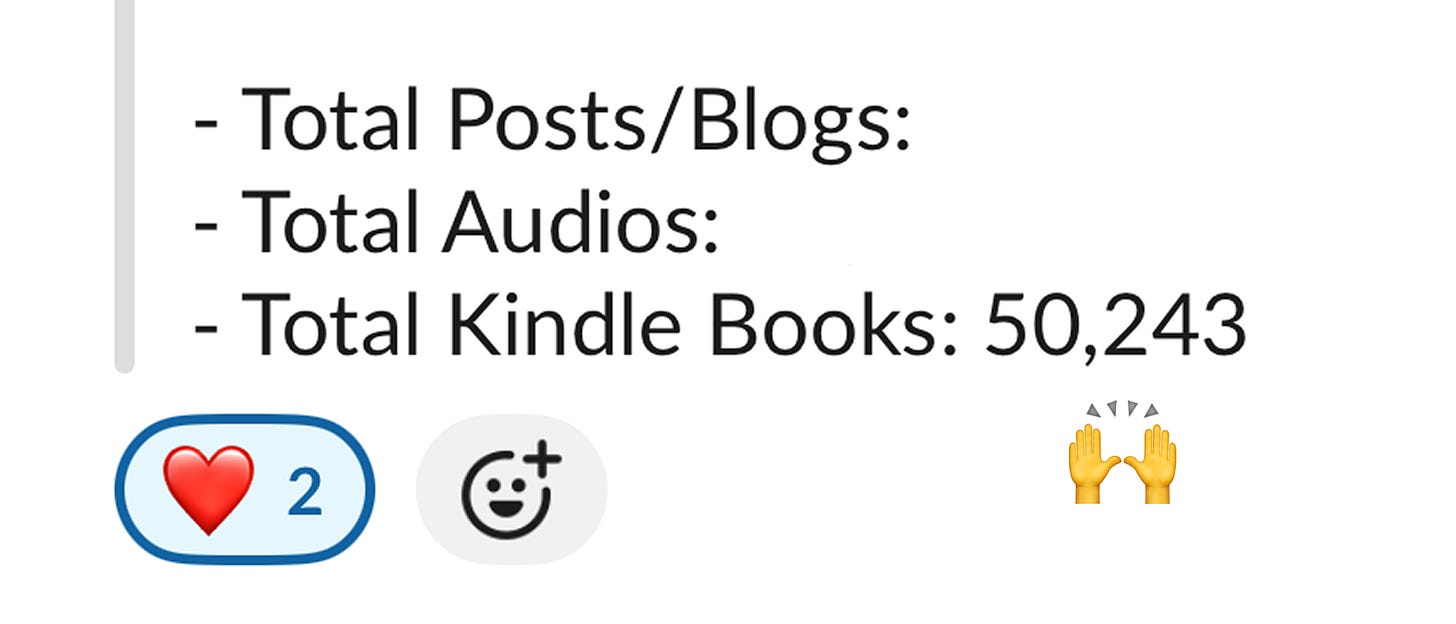The Deeper Benefits of Reading Fiction Most Don’t Realize
Fiction is far more than a “pastime” — and the polar opposite of a “waste of time”
Glasp’s Note: At Glasp, we value the close personal relationships we’ve built with thinkers, creators, and doers who fuel curiosity and growth. This week, we spotlight Neeramitra Reddy, one of the top writers on Medium, sharing advice on self-improvement.
You may remember Neeramitra from his Glasp Talk appearance, where he opens up about his writing process, the hurdles he overcame, and the values that guide his journey, reminding us that authenticity and perseverance can transform our ideas into impact. We’re honored to keep learning from him and excited to share his thoughtful reflections with our community.
If you want to reread or highlight this newsletter, save it to Glasp.
* This article was originally published on Medium.
As I was craping carrots in my boxers, it hit me.
When was the last time I read a fine novel? Lost myself in a riveting story?
“A couple of months ago?” whispered the doubtful answer. But it felt like eons.
Growing up with Percy Jackson, Eragon, and Tom Sawyer, fiction was my one enduring love. My mom’s bedtime stories had sown the seed in preschool itself.
So, why in the world had I jilted this lifelong love?
Simple.
Drunk on productivity and self-help, I’d begun seeing it as a “hobby” I couldn’t afford. Or worse, had I deluded myself into viewing it as a “waste of time”?
Either way, I’d made the cardinal mistake most non-(fiction-only) readers make…
Dismissing the life-changing power of fiction as a “leisurely pastime.”
What Actually Inspires (True Change In) Us Humans
“Of the 500+ books I’ve read so far, which have truly sculpted my life and worldview?” I mused.
Within a minute or so of reflection, names soared up:
Atlas Shrugged. Psycho Cybernetics. Can’t Hurt Me. When Breath Becomes Air. They Both Die At The End. Animal Farm. Power vs Force. Lord Of The Flies. Man’s Search For Meaning. One Flew Over The Cuckoo’s Nest. Crime and Punishment. The Kite Runner. Siddhartha. The Alchemist.
9 of the 14 names above are fiction. Surprising, I know. But it makes sense:
(Research agrees that) emotions stir (most of) us more than logic → Stories stir us more than facts → Fiction stirs us more than non-fiction?
As Neil Gaiman said, “Fiction is the lie that tells the truth” — good fiction packs Reality into stirring stories. To quote former US President Barack Obama,
“I found myself better able to imagine what’s going on in the lives of people throughout my presidency because of not just a specific novel but the act of reading fiction.”
The 5 non-fiction names left? 3 of them are memoirs — aka real-life stories!
A psychologist’s Holocaust struggle (for meaning and survival). A neurosurgeon’s fatal (inner) battle against lung cancer. An overweight exterminator’s transformation into a Navy SEAL and ultramarathoner.
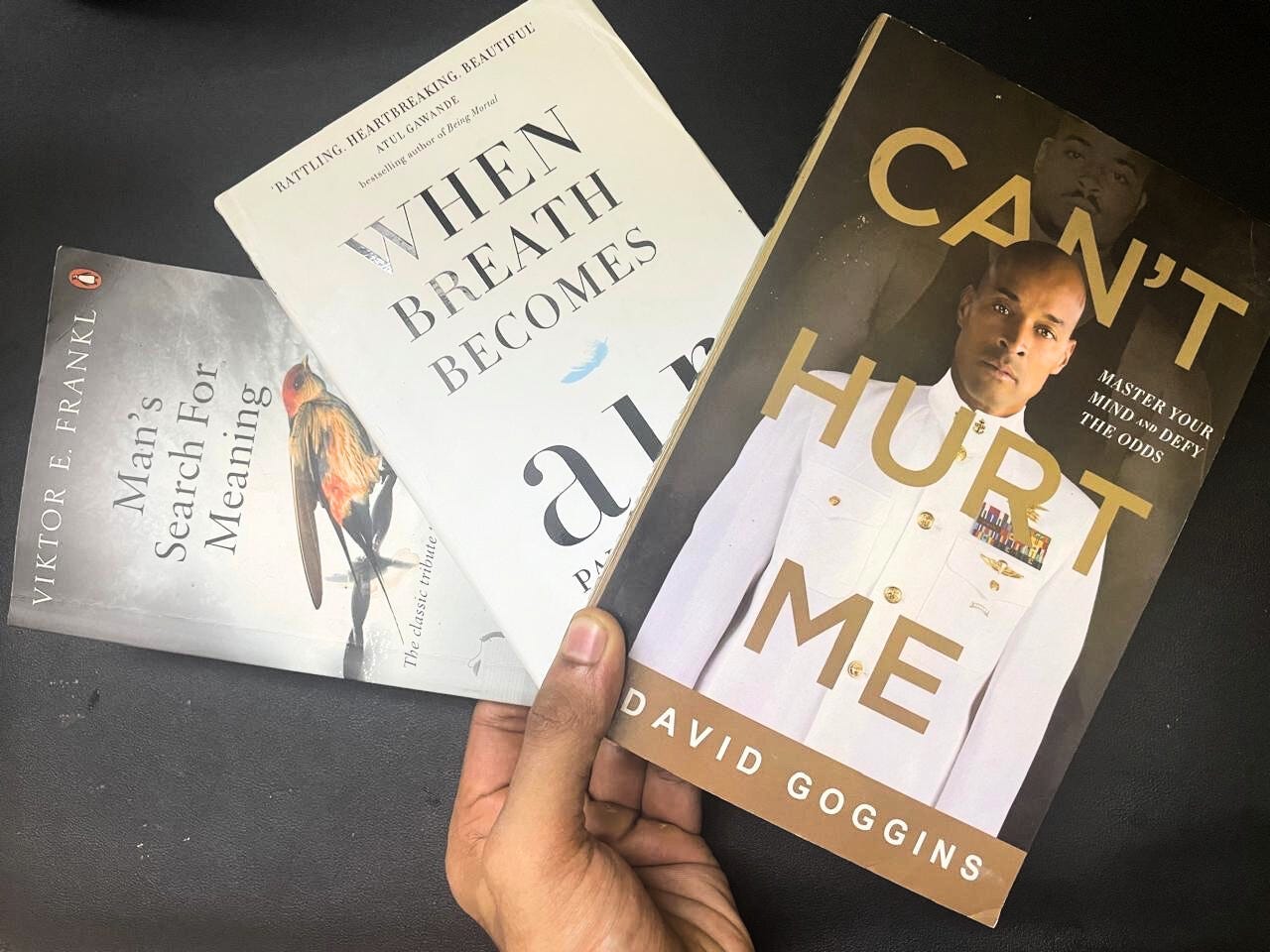
I’ve witnessed the same from the writers’ end, too.
Of my 600+ published articles, the ones that received the most gushing responses?
Stories — about painful heartbreaks, growing up fatherless, and shameful failures.
Forget books and articles. Untold real-life stories rouse us and inspire silent change.
Just yesterday, a medico friend related how he’d almost given up on himself after a C4-C5 disk bulge — letting his fitness, rehab, and self-care go to the dogs.
But when he saw his classmate beat a brain aneurysm to ace her final-year exams?
It fired up the core of his being to start PT, running, and losing weight.
“The most powerful person in the world is the storyteller. The storyteller sets the vision, values, and agenda of an entire generation that is to come.”
Fiction’s Power Goes Far Beyond Just Its Stories…
And culminates in its unforgettable characters (and their traits):
Howard Roark’s unbreakable integrity in The Fountainhead, despite total (professional and financial) ruin.
Sam Gamgee’s unerring loyalty in The Lord Of The Rings, despite looming death.
McMurphy’s tireless cheer in One Flew Over the Cuckoo’s Nest, despite the threat of a forced lobotomy.
These characters have inspired and influenced me in ways no real-life idol has. I’m not alone — as a Guardian research survey found:
19% of the 1500 surveyed readers reported “experiential crossings”— with fictional characters seeping into and shaping their thoughts and worldviews.
As one study found, this transcends mere “relatability” and “inspiration”.
When lost in a novel, we become the protagonist — the self-identity part of our brain thinks about the character, too! This can trigger true change. As the study’s co-author, Dylan Wagner, says,
“Fiction is a chance to take on new identities, to see worlds though others’ eyes and return from those experiences changed,
What previous studies have found is that when people experience stories as if they were one of the characters, a connection is made with that character, and the character becomes intwined with the self. In our study, we see evidence of that in their brains.”
Dostoevsky’s Crime and Punishment is the best example (in my case).
I experienced Raskolnikov’s sheer guilt and inner torment firsthand. This deterred me from wrongdoing more than any spiritual/moral preaching or punitive fear ever did.
Howard Roark’s unbending ethics bulletproofed this further, steeling me to say/do right, even (and especially) when it’s hard. To quote him:
“You’ll get everything society can give a man. You’ll keep all the money. You’ll take any fame or honor anyone might want to grant. And I — I’ll take what nobody can give a man, except himself”
Likely The Deepest Benefit of Them All
When you’re reading a good novel…
You’re not craving life-changing insights. Nor are you thirsting for new knowledge. You’re most definitely not racing to finish it...
You’re reading for the sake of reading.
It’s pure intrinsic motivation at play, which studies have linked to higher fulfillment and well-being. To quote Naval Ravikant,
“Whether it’s business, exercise, romance, friendship, whatever, I think the meaning of life is to do things for their own sake. Ironically, when you do things for their own sake, you create your best work.”
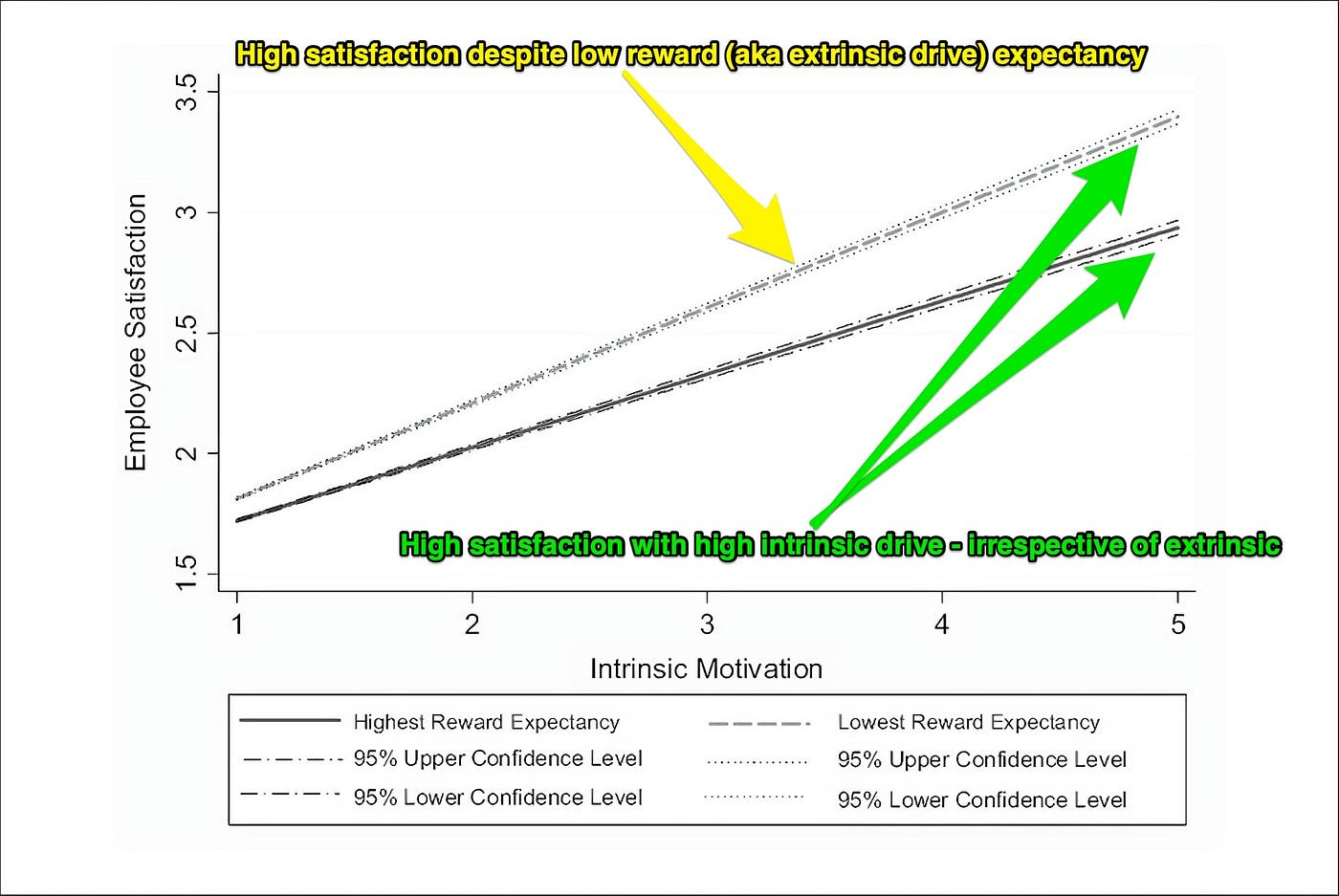
But with business, exercise, romance, and friendship, extrinsic motives can (and usually do) creep in:
Business — leads, revenue, conversion rates, margins, valuation, etc.
Exercise — abs, beach body, impressing others, looking good, etc.
Romance — sex, status, favors, self/social validation, etc.
Friendship — networking, benefits, social status/acceptance, etc.
Even with non-fiction books, such lures exist — insights, upskilling, knowledge, etc.
But with fiction?
No tangible extrinsic lure(s) — except if you’re an author looking to hone your craft. Even then, you need intrinsic drive — writing fiction isn’t for the faint of heart.
Not only is fiction intrinsically enjoyable, but it’s also immersive.
By rooting you in the present, it vaporizes stress and anxiety. A 2009 Sussex study found that just 6 minutes of reading can reduce stress by up to 68%. Another found it as effective as yoga for relaxation. It’s so potent that Bibliotherapy is a thing.
So, fiction is more of a “presentime” than a pastime—a present in time for all of us.
P.S. Good movies can be immersive too — but you don’t “become” the character as you do with reading. Plus, reading has many other benefits — lesser eye strain, better cognition, richer vocabulary, deeper focus, etc.
Expecting “Tips to Routinely Read More Fiction”?
That’d defeat the core purpose of reading fiction!
Despite being well-meaning, such tips can turn reading into a mechanical habit — or worse, a chore.
Reading fiction must be enjoyable, mindful, and free-willed. Then, true long-term consistency will automatically ensue.
That said, I can offer 5 tips — ones that kept me glued to fiction for 12+ years. Except for my recent self-help delusion, this glue never weakened.
Forget “reading goals/milestones” and “number of pages”. Read any book in any genre at any time for any duration you wish. The only metric that matters is how mindfully you enjoy it.
Zero compulsion to finish the books you start. Quit the moment a book gets unbearable. Period. If it’s a good book, you’ll return to (and appreciate) it later on in your reading life; if it isn’t, good riddance.
Spatial Mood-Matching Book Placement (SMBP) — plant books in your go-to spots at home. Vibe-match the books with the locations. Classics (like One Flew Over the Cuckoo’s Nest) for chilling. Long-fantasy (like Malazan) for dining. Reflective ones (like They Both Die At The End) at your bedside. Profound ones (like Siddhartha) on your work desk.
The other MBP (Meal-Based Book Picking) — fast-paced fiction for quick snacks. Slow-drawn, profound ones for large meals. Fantasy is the perfect midpoint. Such an MBP will also help you chew words/insights/morsels fast or slow, depending on the meal.
Never ever empty your reading queue. Fiction or not. Kindle or paperback. Goodreads Want-To-Read or Amazon wishlist. Or saved online book recommendations — always have at least 5–10 books left in the queue.
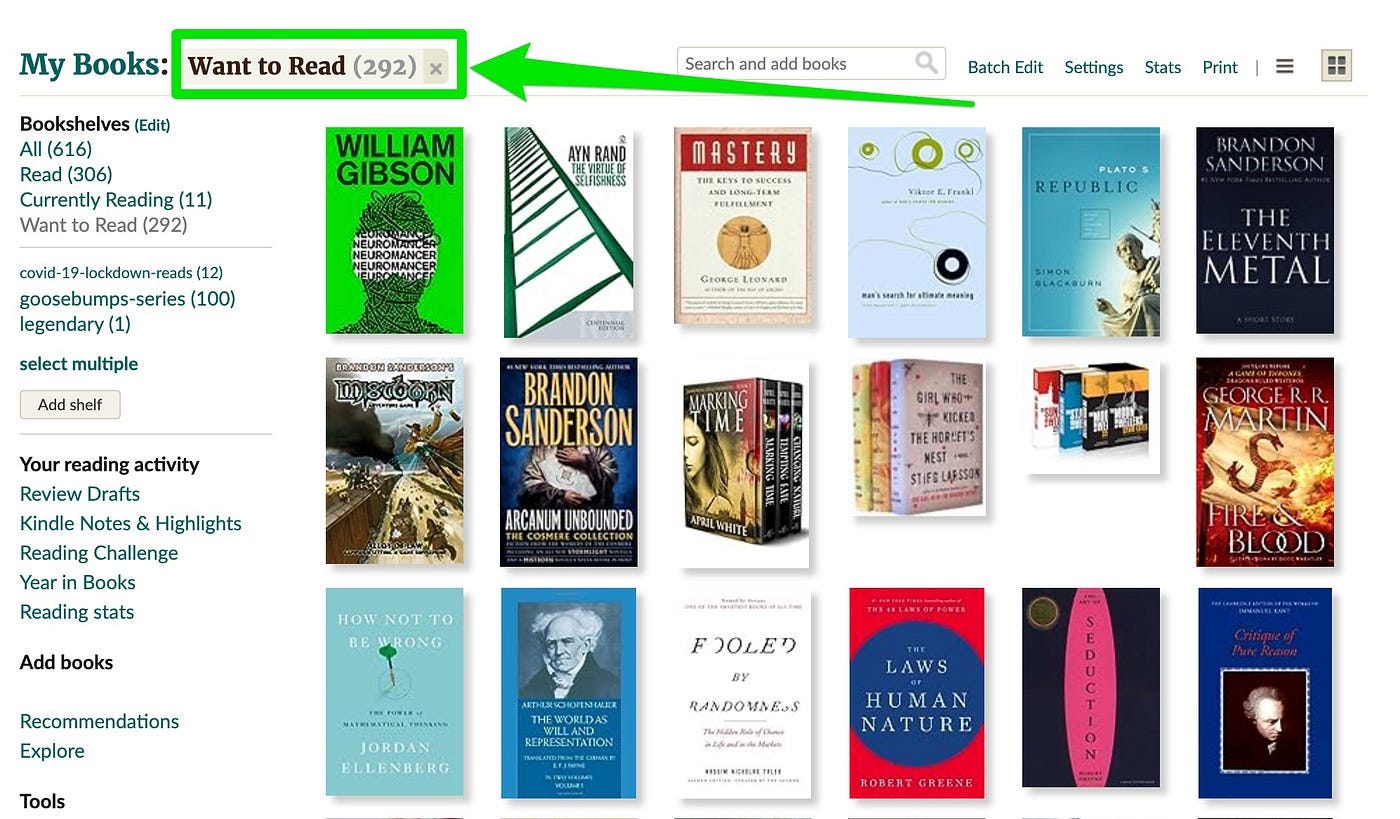
The Smartphone Ubiquity Swap. Pop a pocket novel or Kindle in your pocket. Put your smartphone in your bag. Whenever the addictive urge to reach for your pocket for your phone arises? Fiction will greet you. This is the core reason I have (and recommend) the most basic Kindle.
With All This Said, and My Carrots Long Craped…
I’ll be resuming the Malazan series, with the 10th and final book, The Crippled God. Time to become Karsa Orlong and correct the barbarism of civilization.
“In my village no one is a stranger — and this is what civilization has turned it’s back on. One day, Munug, I will make a world of villages, and the age of cities will be over. And slavery will be dead, and there shall be no chains.’

Which fiction world will you let yourself be teleported into? Which character will you transform into…
In worlds, fictional and real?
Want to Start Each Day with Peak Energy, Motivation, and Focus? Grab Your Free Copy of God-Mode Mornings
4 Soul-Igniting Novels that Can Melt Even the Coldest of Hearts
3 Valuable Novels Way More Insightful than Most Self-Help Books
📣 Community Updates by Glasp
🟥 Glasp Talk with Neeramitra Reddy:
Glasp Talk features intimate interviews with luminaries who reveal their emotions, experiences, and stories. The guest, Neeramitra Reddy, is one of the top writers on Medium, sharing advice on self-improvement. His works are published not only on Medium but also on Economic Times, TheGoodMenProject, YourTango, AnalyticsVidhya, and other premium blogs/publications.🟦 50,000+ Unique Kindle Books’ Highlights Imported to Glasp:
Glasp users have now imported Kindle Highlights from over 50,000 unique books 🎉 This milestone shows how quickly our shared knowledge base is growing. If you’d like to import your Kindle Highlights, please see the tutorial here.
Would you like to take Glasp on the go?
With the Glasp mobile app, you can highlight and organize your favorite content anytime, anywhere. Stay productive on the move and never miss an insightful quote.
Partner With Glasp
We currently offer newsletter sponsorships. If you have a product, event, or service you’d like to share with our community of learning enthusiasts, sponsor an edition of our newsletter to reach engaged readers.



